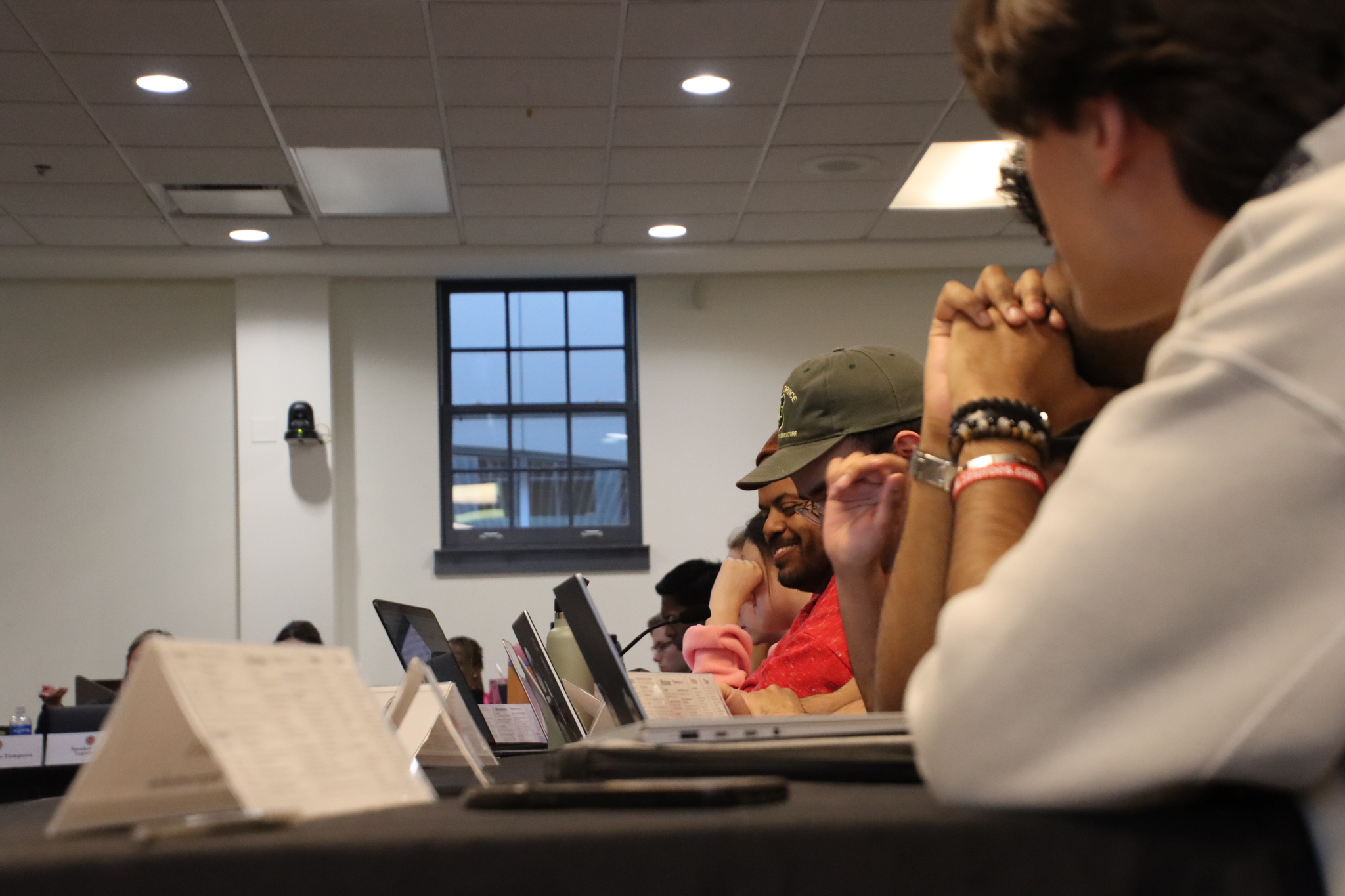The University of Maryland SGA amended several of its bylaws during a semesterly omnibus on April 16, including some that would change the association’s petition process.
The amendments were presented on April 16 in a presidential package from the outgoing Student Government Association president Reese Artero during a discussion that lasted about five hours.
Among the bylaw changes, SGA updated its language about student petitions to make it easier for students and the legislature to understand, the senior criminology and criminal justice major told The Diamondback on Tuesday.
Artero said the previous bylaws only allowed representatives to make minor, clerical edits to the petition’s language, limiting the extent of what changes they could propose.
The updated bylaws define a petition as a written request to the SGA to take a stance on a topic that has been endorsed by at least one percent of the undergraduate student body. Petitions must be submitted to the student body president, speaker of the legislature and the chief justice, according to the updated bylaws.
[UMD SGA election sees highest number of voters since 2020]
Under the previous bylaws, student petitions were submitted as bills following the normal requirements for bill drafting and were to be put on the first reading calendar. The bill would automatically become a non-binding referendum if it failed.
According to Artero, the previous language made drafting petitions “too inaccessible” for students.”
“Not every petition warrants a referendum, and not every petition is asking for a referendum,” she said.
Removal of the previous petition requirement creates more opportunities for students to petition the SGA and holds the association “more accountable to the students,” outgoing engineering representative Graham Firosz told The Diamondback on Wednesday.
“A petition is supposed to be more of an ask of the students,” outgoing speaker pro tempore Leonard Fomin told The Diamondback on Wednesday. “[Bills are] something that the legislature is supposed to take care of, and that’s not fair to put on the students.”
In March, more than 650 students signed a petition urging the SGA to add a divestment referendum question to its 2025 election ballot, The Diamondback reported on March 7.
The referendum, which ultimately passed, calls on the SGA to lobby the University System of Maryland Foundation and University of Maryland College Park Foundation to divest from certain security, military and defense companies.
The bylaw changes also clarify how the SGA Governance Board will verify petition signees.
[UMD students express hope, fear after SGA divestment referendum passed]
Before, the SGA Governance Board needed to contact 5 percent of signees and confirm their signatures.
Under the new language, the governance board must contact 10 to 15 percent of signees, and 5 percent of them must verify their signatures.
The new language gives “buffer space for those who just don’t check their email,” which was not the case previously, Firosz said.
SGA representatives also discussed election bylaw changes during its omnibus, but decided to wait until fall semester to officially vote on the changes.
The changes may include adjusting the student to representative ratio in each academic and residential district because of this university’s growing student population.
“It’s a little unfeasible for us to continuously operate under a population ratio from almost from over 10 years ago,” Artero said.
The proposed apportionment change would increase the number of students under each representative from 1,800 to 2,000 students.
The change will lower the number of SGA representatives for largely-populated schools including the computer, mathematical and natural science college and behavioral and social sciences college, Firosz, a sophomore computer engineering and public policy major, told The Diamondback on Wednesday.
The change may make representation unfair to these schools since their representation will decrease, Firosz added.
“Even when [the ratio] is discussed in the fall of 25, I think it’s still going to be quite controversial,” he said.



